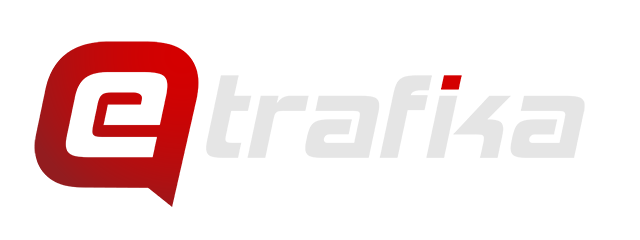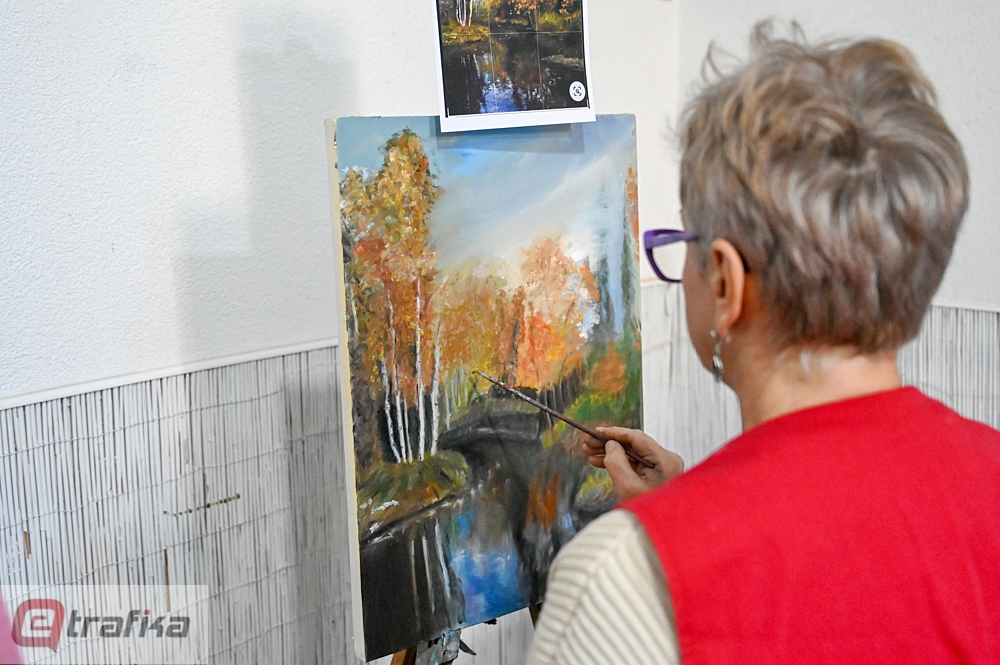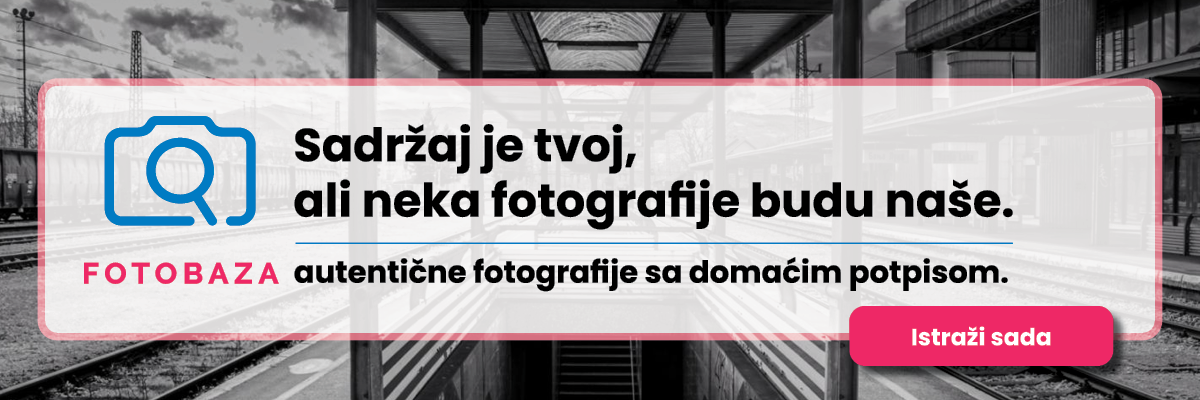Sitting in the middle of the room, surrounded by a lot of paintings hanging on the walls, Gordana Stapic is painting her vision of a winter idyll in the country side, using oil paints. A long line of wooden houses, barns, trees and haystack covered with a white blanket in the dusk.
Written by and photographed by: Ajdin Kamber
It looks as if she sweeps away everyday problems and burdens with every brush stroke. And she really had hard time during the past period. Her mother passed away recently, whereas her own health has been deteriorating for years as a result of a stressful job.
She found her oasis of peace here, in the “Nas Most” (Our Bridge) Association in Zenica, and the place where she can make her life better. She is not the only one, there are around a hundred of persons coming here regularly. These are mostly the third age women, but there are also men, and they all give each other selfless support.
“The first time I came here I was on sick leave because I experienced burnout from excessive workload. I had problems with the thyroid gland, and was about to have a stroke and heart attack”, Gordana describes her first visit to “Nas most”.
It was then that she realised she had to instantly change something in her life. She decided to leave her job, calm down and engage in creative work.
“Upon my arrival here, I was hit by this positive energy and I promised myself that I would come back. These are like therapeutic workshops for me. I met lovely, creative women”, fifty-seven-year-old Gordana says, tears pooling in her eyes.
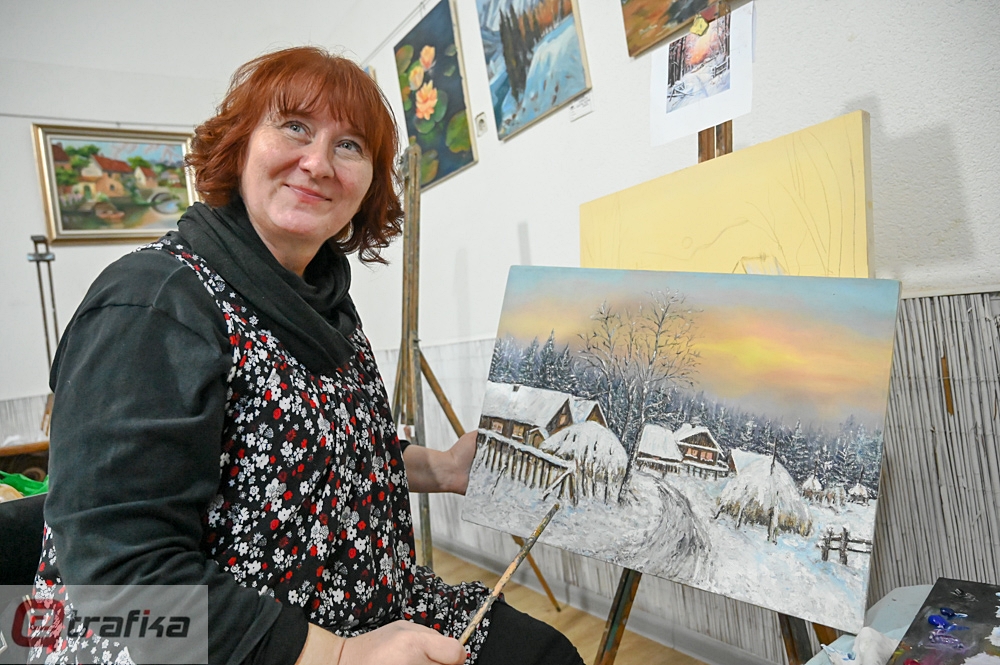
She worked as a company manager for more than twenty years, and the volume of work and stress entirely damaged her health, but she found great support for her future plans both in the Association and among her family members.
“After I came here few times, my husband told me that he had not seen me as happy for the last ten years, nor had he seen me with such a smile. He was thrilled for me”, she describes.
She added that her husband promised that he would take care of the family finances in the future, and that she should take care of her health, therefore she was able to continue coming to the Association. Here she has an opportunity to forget about everyday life challenges at least for a moment. Her story is followed by Munevera’s, who is about 90-year-old lady, and who describes in details an extremely difficult position in which the third age persons find themselves in Bosnia and Herzegovina.
“These days it is really difficult to have friends or acquaintances, because they are scattered all around. It is especially hard given that children are far away from each other, living in different parts of the world, which causes great sadness to every family in our country. To see your child only via a cell phone or a computer, that is not a real life”, Munevera Dervisevic speaks in a low voice.
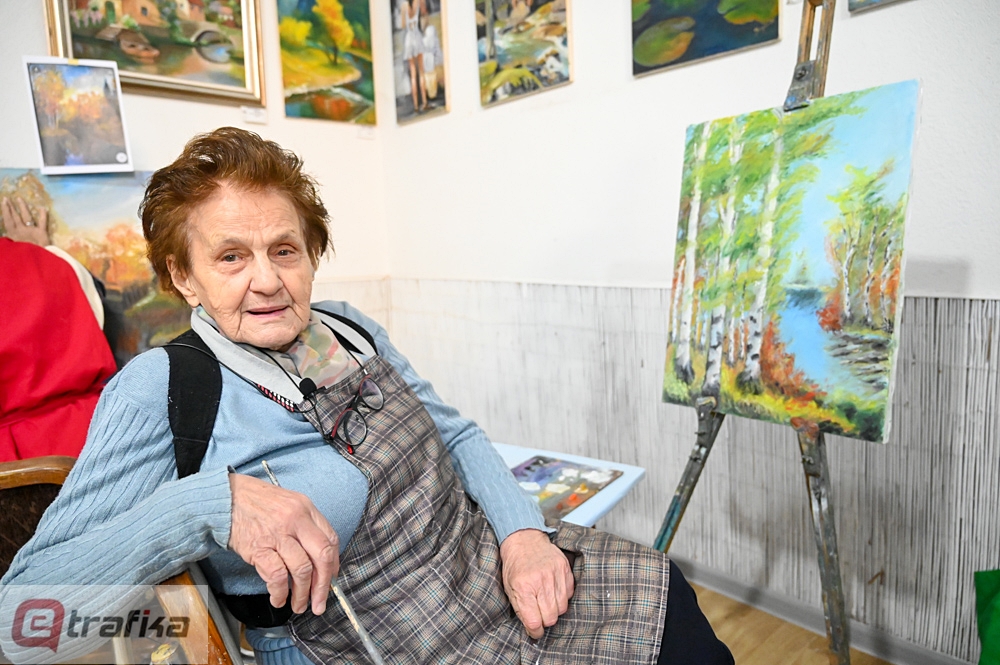
She is active, sociable, likes to paint, and also manages to sew silk with precision and to prepare the most demanding meals, regardless of her age. It is only the loneliness that causes her problems, which she is trying to overcome by socialising in the Association.
A place for healthy and happy ageing
Zdena Saric Pisker (72), the Association President, has been running this place successfully for more than two decades. She says about herself that she has always been involved in creative work and has always showed interest in art. She is a pioneer in BaH in painting with an unusual technique –iron and wax. On a heated iron, similar to the one used in an ordinary household, she puts a thin layer of wax colours and then applies them straight onto the paper, painting incredible motifs. Most often she paints landscape – forests, glades, streams dappled with an incredible collection of colours. Now, she is passing on her knowledge and experience to others.
The most important thing for Zdena is that everyone feels accepted here, that everyone is creative and that activities and socialisation help them cope up with their health issues.
“One friend of ours would spend time here and would work with us, and then she would continue her work at home. A couple of days later she told us that she had not taken a single lexilium in the last several days, which was her regular therapy. I also tested some of my friends, who were depressed. If one of them would just spend half an hour with me in this room, with that iron and colour ironing, then it meant my art was meaningful and was helpful”, Zdena recounts.
She is convinced that art is a positive tool in fighting depression, anxiety and other health problems, supporting this claim with her personal experience.
“I live with all these diagnoses of mine, nevertheless I behave and act as if I did not have them. This means that I live my life to the fullest, I live for art and I live to show to the world that it is possible to overcome problems with art”, explains Zdena, who has been holding workshops for years and has been transferring her knowledge throughout BaH to the workshop participants, who are mostly the third age women.
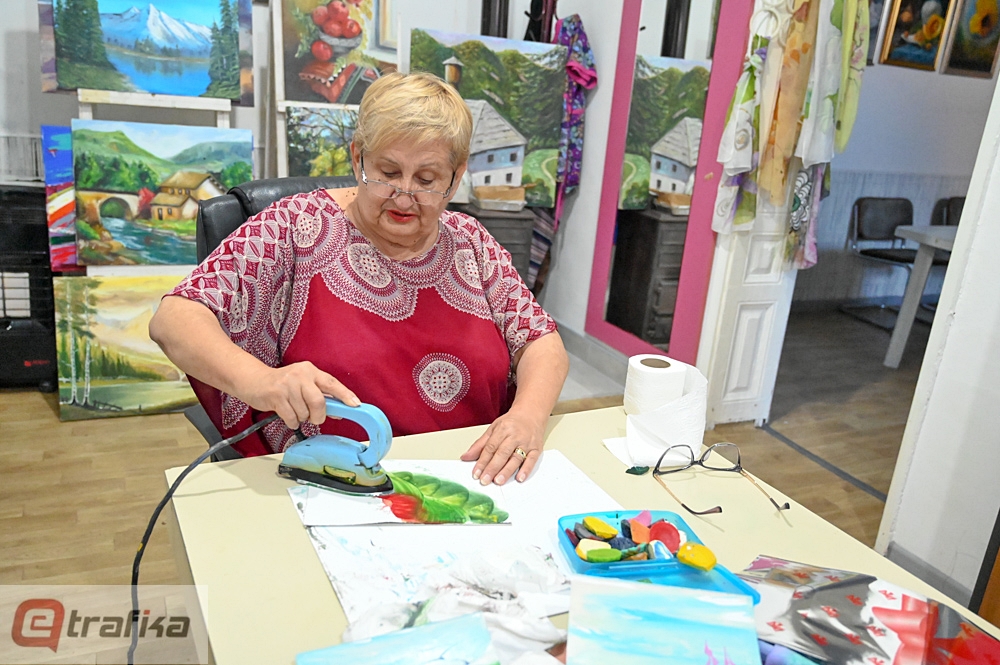
She realised that she was on the right track when one of the workshop participants told her that it was the best day of her life.
“It was hard for me to understand that out of so many important days in her life, like birthdays, marriage, birth of her children and many others, that day was her best one. She told me then that that day was only hers. As for all other events, there were other people involved, whereas she had that entire day only for herself”, Zdena retells, smiling proudly.
The third age people from Zenica and the surrounding towns visit this Association. Most of them had no opportunity to engage in art or creative work before they started coming to the Association. Here they have an opportunity to meet each other, to socialise, engage in different painting and artistic techniques, make art and jewellery. The workshops are free. Also, they may present their work to the public at exhibitions and other events which are organised seasonally, but also earn some money from sales.
And they seem to be happy. There are only a few things that can make people in Bosnia and Herzegovina happy.
The country was devastated in the last century by the 1990s war, the consequences of which are still felt, even today. The suffering and the pain marked the difficult post-was period, which was followed by unsuccessful and often crime-ridden privatisation. Many companies and factories were closed down, and a huge number of workers were left with no income. That generation, which today, almost thirty years after the war, being in their third age, barely make ends meet with their minimum income or without any pension, with children scattered all over the world, facing other difficulties which have affected the deterioration of their health. Both physical and mental health. The average pension in BaH is about 300 EUR, whereas thousands of pensioners live on minimum pension of around 130 EUR, which is not nearly enough to cover utility bills, food and medications.
Loneliness is a big problem
Natasa Pivasevic, Bachelor of Science in Psychology, says that when we think about the position faced by the third age generation in BaH, we also have to think about large emigration of young people. This means that the third age persons, who have invested everything in their family as their primary community, are now experiencing a great loss, given that the generation they have raised is no longer close to them.
“In regards to this we should also mention a basic problem, which is a large percentage of poverty among elderly people. Poverty means that our primary human need is not satisfied, and I am not referring here to the emotional need, but the existential one. The person who cannot satisfy his primary motives, such as financial stability, which solves the issue of having food, health and shelter, most often has no possibility to move on to the next stage of motivation, which would entail closeness with others and qualitative socialisation, and ultimately self-actualisation, self-development and the development on one’s own capacities, even in the third age of life”, Natasa says.
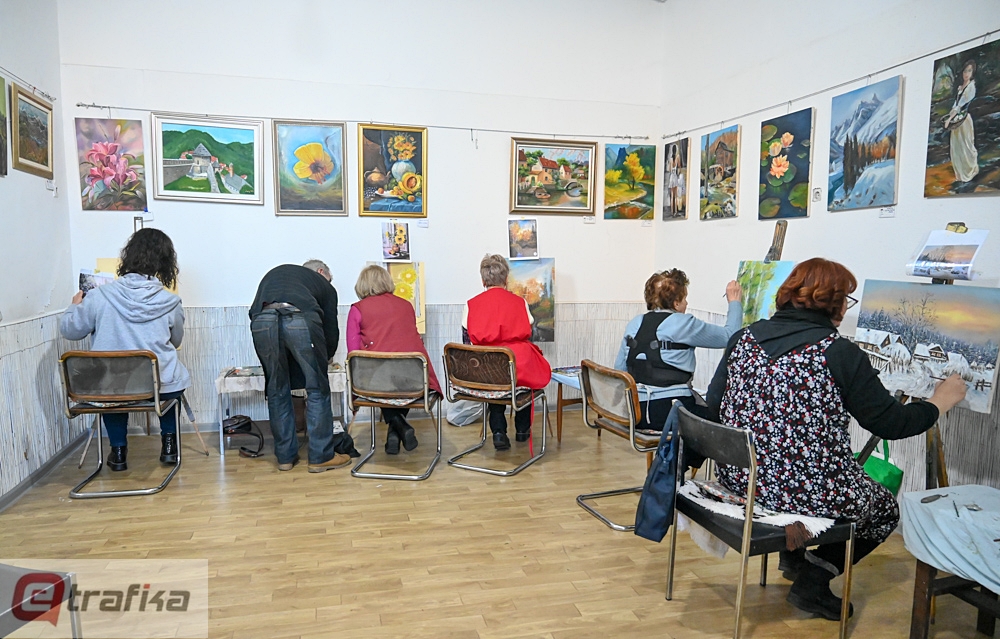
Dragana Vucic, social worker, has been working with the third age persons for more than ten years. She believes that when old age begins, people experience numerous problems, that are increasingly difficult to cope up with, and that there are only a few who reach the third age wealthy and physically and mentally preserved.
“It is difficult when so many psycho-physical changes take place, and you have children living abroad or they are preoccupied with their own lives. The pension is small, the costs are increasing, you are without a spouse or your spouse is sick. There is no education that can prepare someone for what old age brings”, Dragana explains.
She highlights that people who are trying to overcome these hardships in life feel sad, isolated and abandoned by everyone. That is why daily centres, retirement homes and associations are true safe havens for this age group.
“Within these associations and organisations they regain social significance, get attention, the sense of belonging, but care as well, and with new obligations they feel useful and fulfilled. Once you are a member, user, or participant of any group, you become a part of the system and get support instantly, you are no longer alone. You have a responsibility and a motivation to wake up in the morning, to eat on time, to get dressed and go somewhere, to socialise, to talk and do whatever keeps you occupied and interested. With that sense of belonging, both social and psycho-physical quality of life improves”, notes Dragana, who is one of the founders of a Daily Centre for the Elderly, and is employed by the Banja Luka Retirement Home.
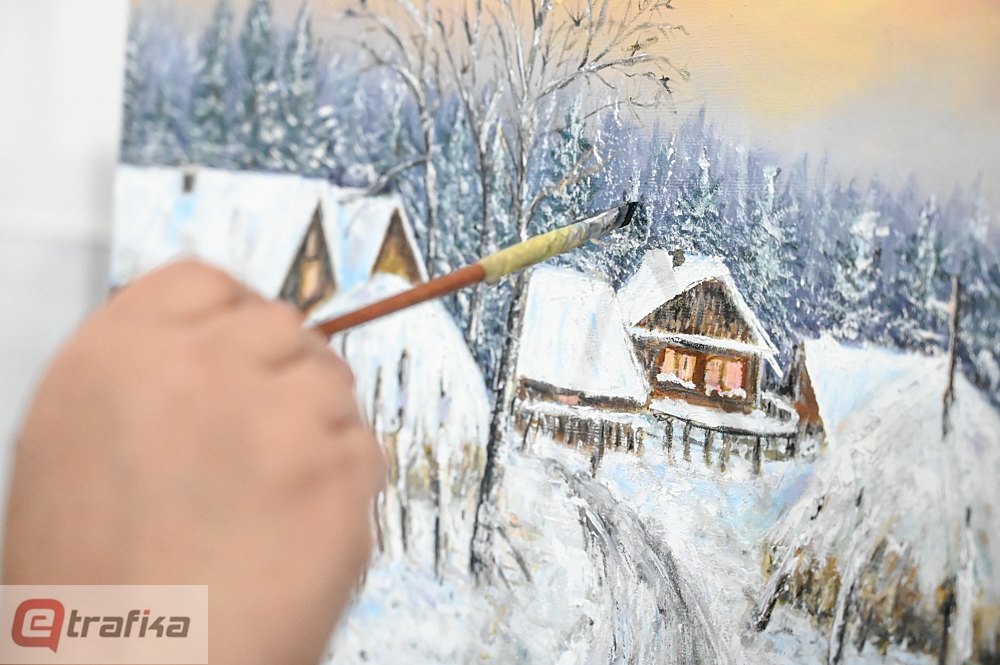
She also mentions that there is a difference between solitude and loneliness. While solitude is sometimes necessary and needed, loneliness eats us up and is detrimental.
“If you wish to be alone, then be alone. But if you feel lonely then join any of the mentioned groups, and that feeling will eventually vanish, being replaced with a feeling of belonging, fulfilment, gratitude and care. And please do not forget: We are the masters of our thoughts and our lives. As long as we are positive and have a strong spirit, our life will be happy regardless of the problems and difficulties we face. Yes, age is just a number, nothing else”, she accentuates.
We lack vision
The Institution of Ombudsmen of Bosnia and Herzegovina points at the fact that the general standard of living of a large number of elderly drastically deteriorates upon retirement. To have them remain full society members, it is necessary to put in place adequate resources which would enable older people to have a decent life and to play a more active role in public, social and cultural life.
“The absence of strategic documents and adequate policy exclusively aimed at regulating the rights of the elderly demonstrates the non-fulfilment of the obligations of the competent institutions and authorities, as set forth by the European Social Charter, which BaH has ratified, and according to which every elderly person has the right to social security”, claims the Institution of Ombudsmen in BaH.
The Institution further adds that there is also a lack of vision as to what the life of the elderly should be like, on the grounds of which specific activities in relation to different areas of their needs would be defined.
According to the World Health Organisation, healthy ageing is described as the process of developing and maintaining the functional ability that enables well-being in older age. Active ageing allows a person to continuously participate in social, cultural and economic activities, pursuant to his/her needs and capabilities, and to receive adequate support and care.
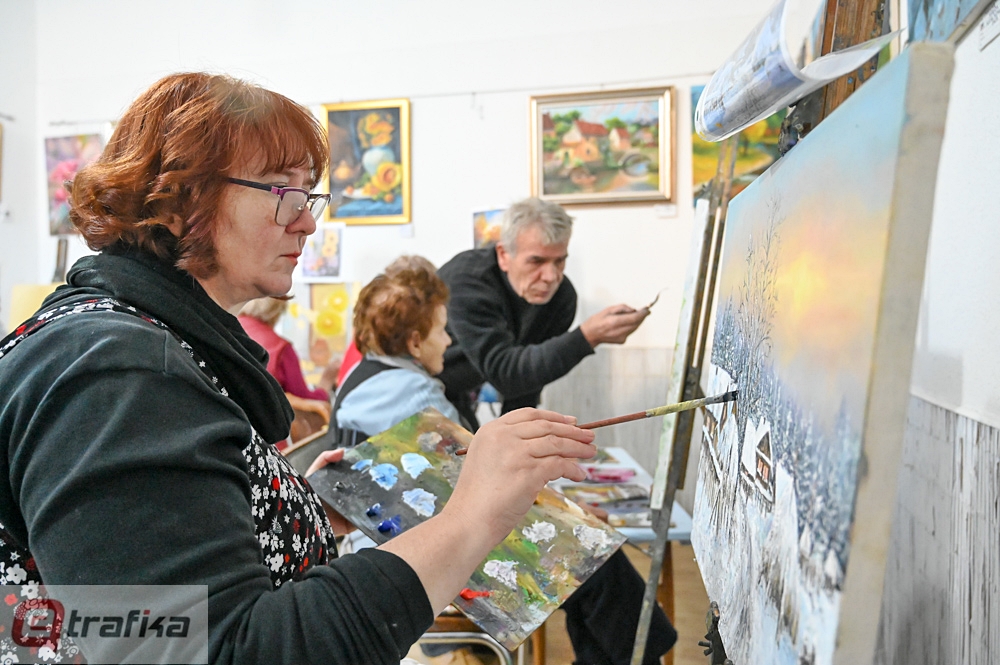
Apart from the Convention on Human Rights, the European Convention for the Protection of Human Rights and Fundamental Freedoms, BaH has also signed the UN Resolution 46/91, defining the principles for the protection of human rights of older persons, which enables a quality life in older age, and which covers: independence, social participation, care, self-fulfilment and dignity.
The domestic legal framework includes the Constitution of Bosnia and Herzegovina, the Law on Prohibition of Discrimination, prohibiting any form of discrimination based on age, and special laws defining various forms of social and health protection at the entity level.
Although a population census was supposed to be conducted last year, BaH authorities have not done that, therefore the data that we have on the population structure are still those from 2013.
In recent years, a huge number of young people have left BaH to work abroad, many of them to stay there for good, which means that the demographic structure has greatly changed. In 2020, the demographic analysis, carried out by the statistical institutes, supported by the UN, shows the trend according to which by the year 2070, the portion of elderly in the entire BaH population could increase to over 40% as a result of serious emigration from the country and population ageing.
For active ageing
Although the “Nas most” Association from Zenica is one of the rare and bright examples where the third age persons can feel accepted and active, there are still certain limitations, primarily of a financial nature. The Association was allocated free premises by the City of Zenica. Zdena notes that throughout their existence, they have never received any financial support from the City or the Canton, which is why they are doing whatever they can to continue functioning. And all this costs a lot, there are utility bills to be paid, painting material, accessories. As we speak, it is the month of December and three heaters are not sufficient to warm the entire premises, given that the joinery is quite old.
There are surely other limitations, preventing others to join the activities organised in “Nas most”. Some people live in remote areas or villages which are not well connected by public transport or they simply do not have enough money to pay for the bus ticket. Many people have other responsibilities at home, or are not in a good shape and their health condition disables them to move around.
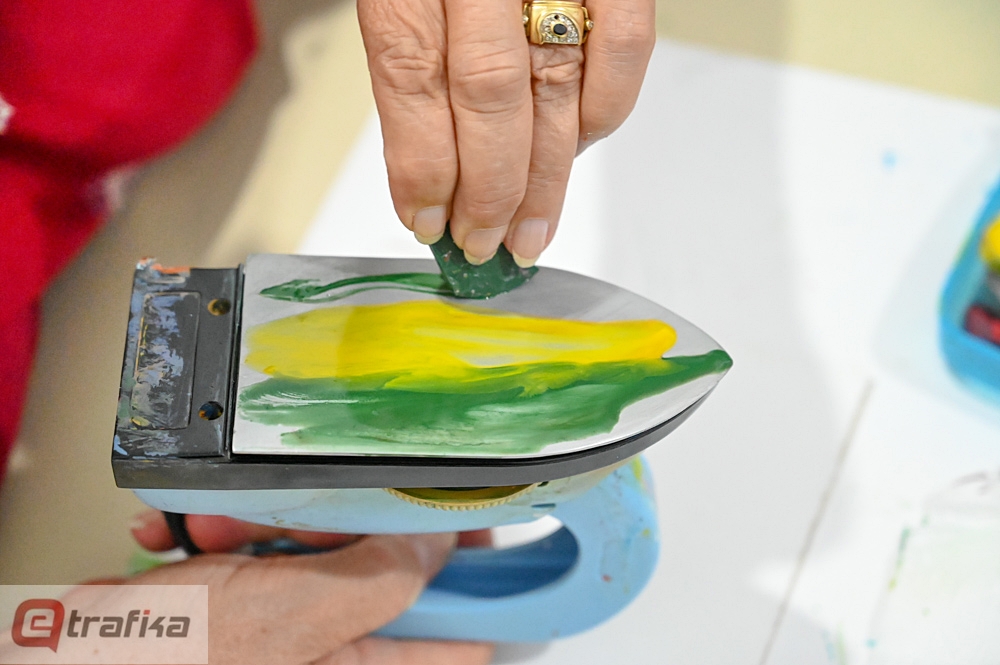
It is important to mention that some of the third age persons have grown up and lived in a traditional and closed environment, or have never tried to express themselves artistically, therefore they lack in courage or feel ashamed to join the workshops, although the Association highlights that their door is always open and that many older people have engaged in art only in later years.
“There is no politics here, no discussion about unpleasant topics. Should someone have a problem, we comfort him or her with a hug and a kiss, and then continue talking about our paintings and creations”, says Gordana as she finishes her painting with winter motifs, adding that they exchange positive energy here, which has a good impact on everyone.
“I am happy here. Shortly before we started our conversation, I was in the forest that I am painting now, and it was a sunset. You simply get in there and the world around you disappears. You take time for yourself only, and it is so relaxing, therapeutic and healthy”, she concludes.

